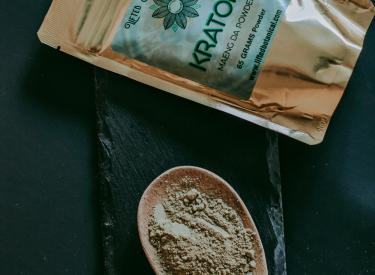
My Life in Recovery
When I moved to Boston at the age of 23, I had already survived a decade under the shadow of a substance use disorder, grappling with its emotional, social, and financial consequences on my life.
It began with a single midnight glass of wine when I was twelve—which I drank to quiet the memories of sexual violence that kept me from sleep—and transformed me into someone I refused to recognize.
I become someone who ran through friends’ bathrooms searching for old medication and someone who cancelled plans to drink alone. I was locked into a schedule of drinking and using substances that my brain certainly felt was as necessary for survival as sleeping and eating.
Moving to this new city, I was fortunate to have meaningful and engaging work as a community organizer and educator. But my life nonetheless no longer felt like my own. My brain had been “hijacked.” Despite my whole-hearted efforts to break free from relentless cycles of use and failed abstinence, I could no longer imagine a way forward undefined by substance use. Whether I was at a critical state house meeting or making a simple attempt to grab coffee with friends, a ferocious pack of cravings circled around me. My hours were organized around fulfilling my compulsion to drink and use. I lived in a state of justified fear that these cravings would ultimately hound me to death, joining me with the growing mosaic of obituaries chronicling the lives of other young people whose vibrancy we have lost to this epidemic.
How then, am I now living a life in recovery, full of friendship, travel, social action, and renewed opportunity?
I was fortunate: one night, a desperate, late-hour Google search led me to Boston Medical Center’s CATALYST Clinic, an innovative, science-based addiction medicine clinic for youth and young adults. Immediately upon being seen, I was offered Medication for Addiction Treatment (MAT), the lifesaving, standard-of-care treatment for substance use disorders like my own. For the first time in a decade, those debilitating cravings subsided, creating space instead for experiences that brought me meaning, passion, and connection. Recovery is challenging work, but my life is mine again and that makes each moment worthwhile.
My path has been transformative but tragically is not typical.
To access quality, standard-of-care treatment, I had to sort through a plethora of misinformation and exploitative, sub-standard providers, making it all too likely that I would have fallen through the cracks. According to research from Boston Medical Center’s Grayken Center for Addiction, this is the heartbreaking reality for many: only one in four young people seeking treatment for opioid use disorder receive one of these life-saving medications and additional science-based treatments can be as difficult to come by. Instead, many families end up spending hundreds of thousands of dollars on treatments that are not effective or even harmful.
Finding science-based, high quality medical care to treat the foremost health crisis in our country should not be a matter of chance.
Patients and families deserve a reliable, trustworthy resource to identify providers following best practices and offering the highest quality of care. That is why it is critical that Massachusetts is participating in ATLAS, a new online addiction treatment locator, analysis and standards tool being developed by Shatterproof, a national nonprofit providing a voice for people with substance use disorders, their families, and their communities.
ATLAS will help individuals facing addiction navigate the complexities of the treatment system across the Commonwealth.
Massachusetts treatment providers have been asked to disclose information about their practices to Shatterproof, making it possible for patients and families to choose high-quality treatment. As someone who once looked to the internet for information and has benefited from the excellent care of a dedicated team of providers, I know how important it is for addiction treatment centers across the Commonwealth to participate in this lifesaving initiative.
My story does not need to be the exception. People with substance use disorders can live full, meaningful, and restored lives.
While many providers are already working day in and out to do the right thing and provide necessary, lifesaving care, we must continue to collaborate to close this knowledge gap and ensure the success of the aims of the ATLAS program. Substance use disorders can have a cataclysmic impact on patients and their families, but their trauma does not have to be irreparable and the prognosis does not have to be fatal. The treatment is out there to make recovery a possibility for every patient and it’s time to ensure patients and families can access it.
Eitan Solomon is a Shatterproof Ambassador based in Massachusetts.




